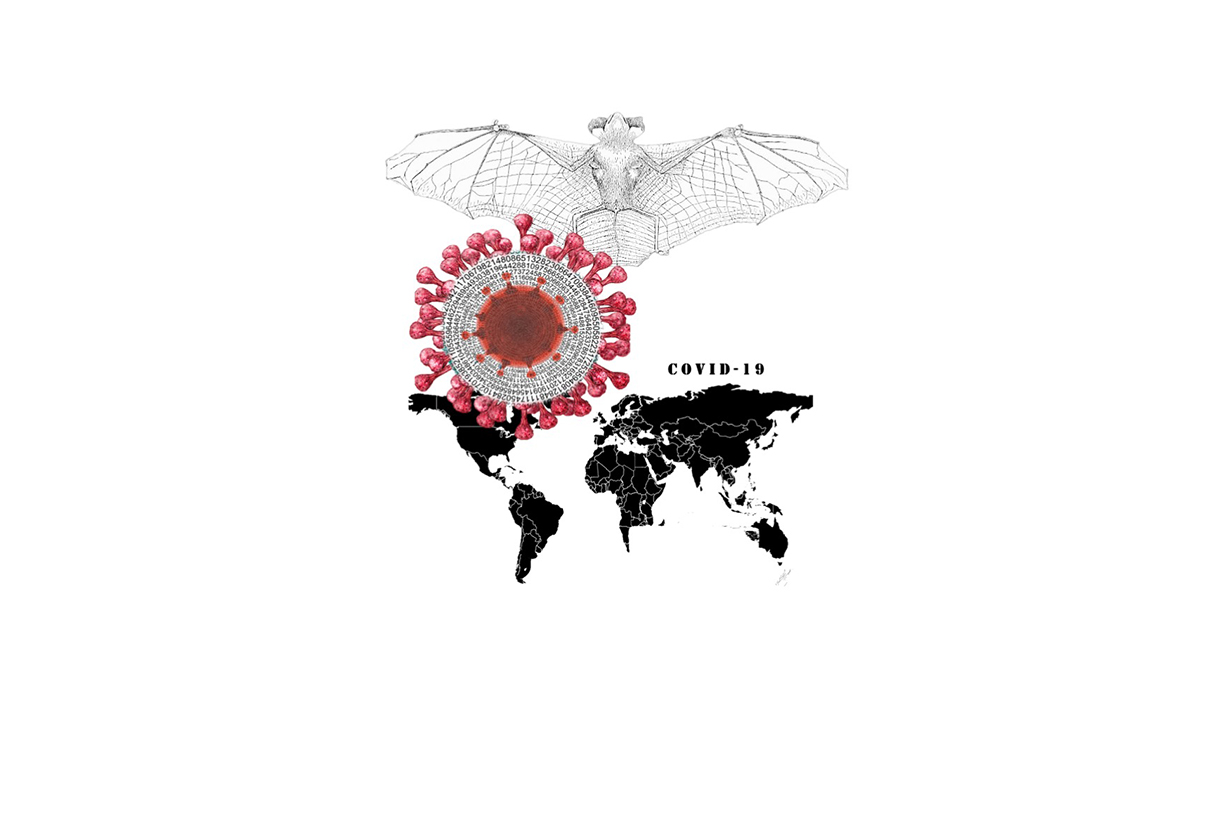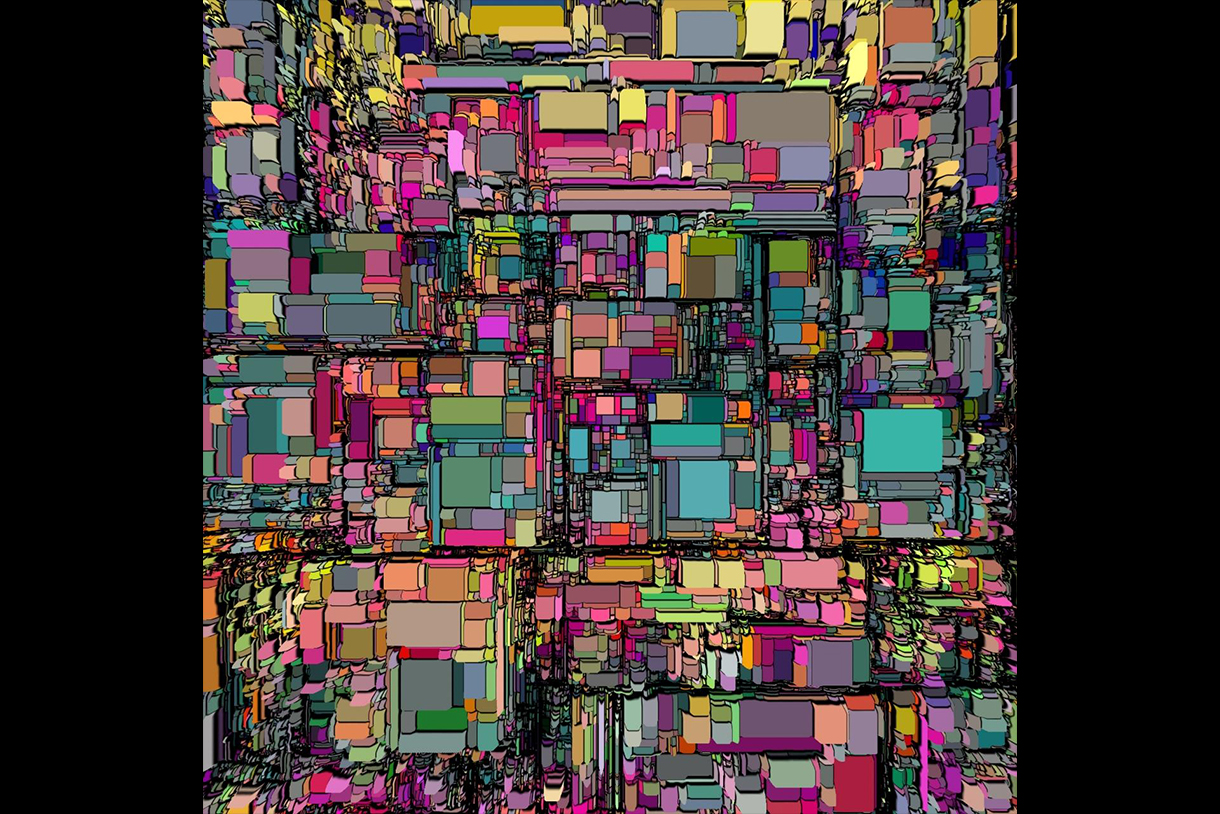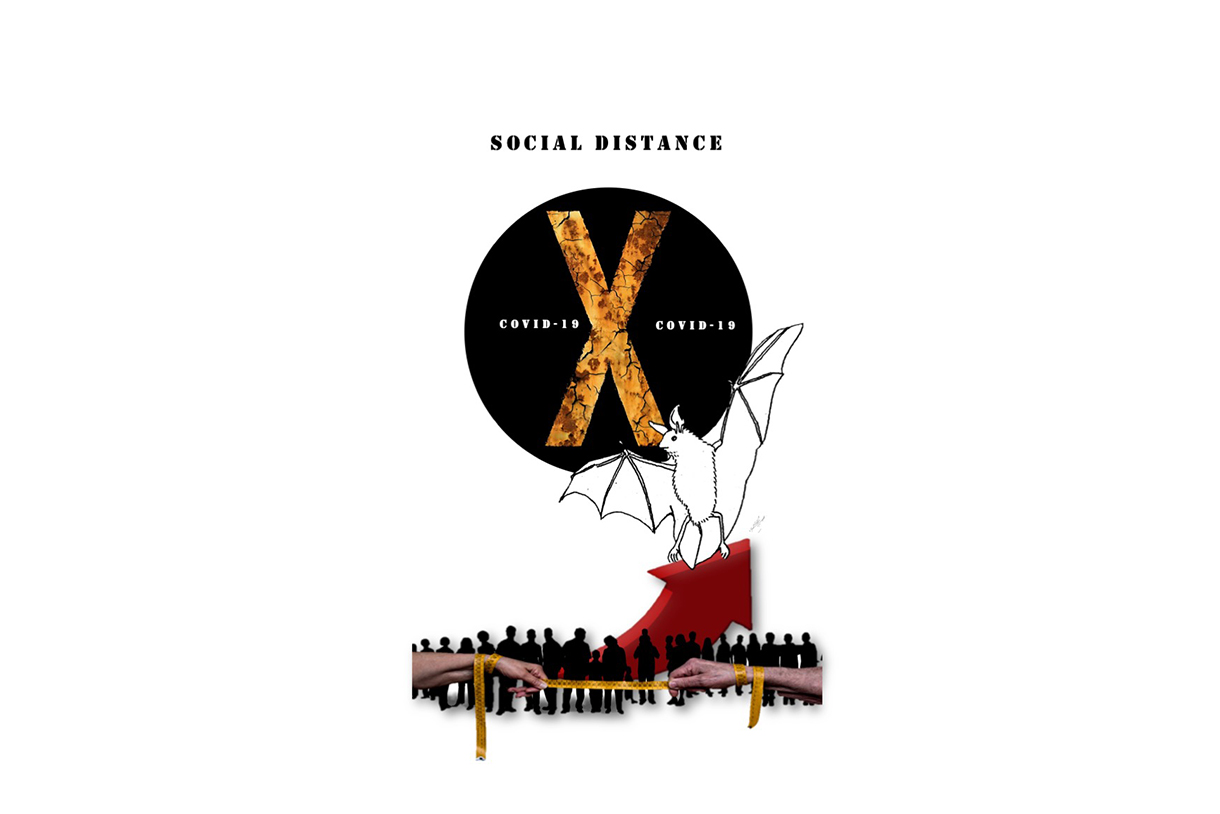We Will Survive: Paria Izadmehr on Art, Resilience, and COVID-19
Paria Izadmehr has been creating art as long as she can remember. “I used to combine different materials to create art. I would collect smooth stones and seashells from the beach and put them together to make abstract animals and creatures. Those were my first art crafts,” she recalls.
An international student looking for a program that would meld art and her former area of study—engineering, which she studied at Azad University in Iran—Paria learned about Columbia’s master’s degree in Interdisciplinary Art and Media and enrolled as a graduate student in the Art and Art History department.
Her engineering experience lends a scientific perspective to her art. Through this lens, Paria strives to combine art with structure and geometric abstract patterns, math, physics, science, and quantum mechanics. “I am an artist and a scientist. I combine science and art to make science more tangible and perceptible. My inventive grandparents were my main influencers. They were so talented in sewing, knitting, needle crafting, bookbinding, carpeting, and wood crafts,” she says before listing scientists and artists who she also considers to be influences: Einstein, DaVinci, and Dali.
Slated to graduate this spring, Paria is currently working on her thesis project, The Pomegranate is the Code of Genius, a piece that explores the morphology of pomegranate arils and seeds with the language of algebraic geometry.
Like all students, Paria has felt the weight of the current COVID-19 global pandemic. She says art has helped her “during this time of uncertainty and grief. This is a way that I can demonstrate, transform, and release all the feelings and struggles that we all are facing at this time.” Reflecting on the pandemic leads Paria to recall other times of struggle, particularly her time as a child in war-torn Iran when her city, Tehran, was bombed. “I remember how my family and friends were terrified and desperately moved from home to different safe places and how people died from chemical weapons. So, I am grateful for the opportunity that I have right now to focus on helping my friends and community as much as possible. I tried to adapt to the new situation and made a corner of my apartment into a tiny studio.”
Paria’s parents who still live in Iran asked her to create graphic arts about COVID-19 to warn people around the world about the pandemic. “To emphasize that we all are on the same boat as one global village that needs to be in peace together. Something my mom has always believed.”
When asked what advice she would give to prospective students or others looking to pursue art she says, “Trust yourself and follow your passion. Be honest with yourself and others. Be productive and mindful of your artistic decisions. Be a big believer. And as Milton Berle said ‘If opportunity doesn’t knock, build a door.’” Most importantly she notes, “Build a supportive art community around yourself. We are in this crisis together and we will survive.”
MEDIA INQUIRIES
Daisy Franco
Communications Manager
dfranco@colum.edu
312-369-7507
Recent News
- Students Excel When Following Passions in Columbia Core Curriculum
- Tomas Videla, MFA ’19, on Building a Life from His Love of Music
- Columbia Student Talks About Her Passion for Illustration
- Five Things to Check Out Online During Columbia's Winter Break
- Associate Professor Carmelo Esterrich to publish Star Wars Multiverse in 2021


